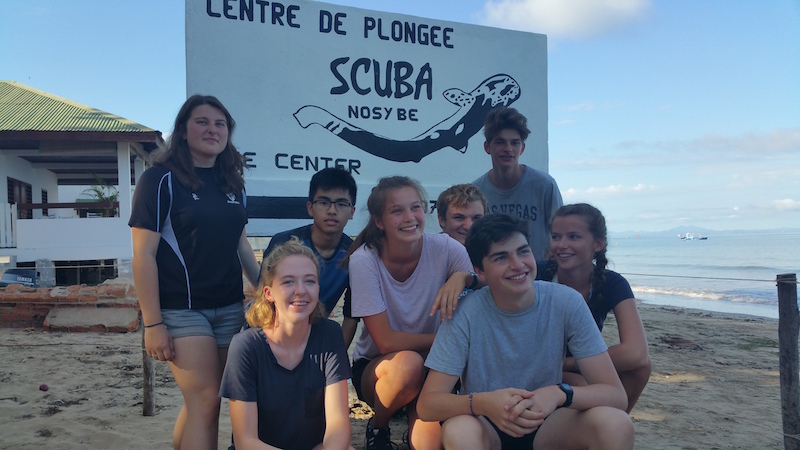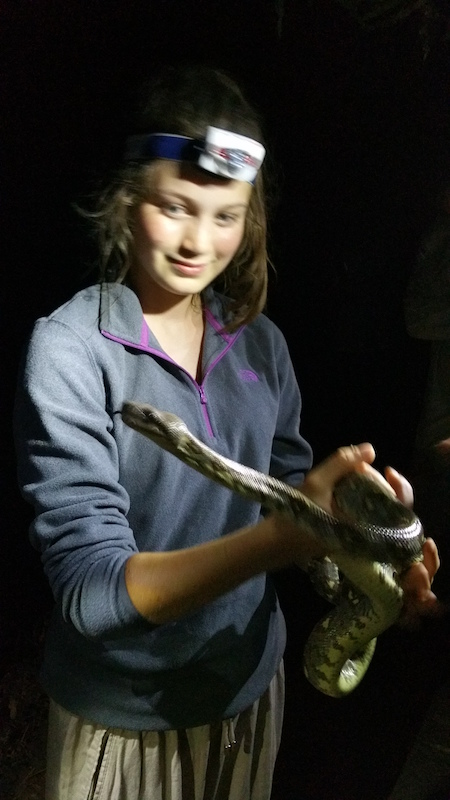Dauntsey’s intrepid biologists return from spidery conservation trip to Madagascar
Posted on 17th Sep 2018 in School News, School Trips
A team of eight Dauntsey’s biologists and two staff have returned from a fascinating conservation trip to Madagascar. The journey started in a forest site in the north of Madagascar conducting scientific investigations which involved walking through the forest looking for specific groups of animals such as spiders, lemurs, chameleons, birds, frogs and butterflies.
Vincent Muir, Head of Biology, Dauntsey’s and Trip Leader said:
“One of the last surveys at this site was carried out at night and was led by a PhD level student whose interest was a particular spider of the Archaeidae family. One of the Dauntsey’s pupils hit the jackpot by finding an individual likely to be of a new species within this family of spider. These spiders, colloquially known as assassin spiders, are notable in that they prey on other spiders and are anatomically distinct from other spiders as they have ‘necks’.
“The spider has now been sent to Brussels to be analysed and documented by a global spider specialist and we will hopefully learn more about this soon.”
The group then travelled to the Island of Nosy Be for a marine ecology course. The students either completed their open water dive qualification, advanced dive qualification or conducted marine ecology surveys every day for the next week. The group learned how to identify corals and fish and made a video record of sections of the coral reef for later mapping.
Tom, one of the students on the trip, said:
“There was a series of lectures from the dive instructors on marine ecology and we were often able to learn, jump into a wetsuit and then almost immediately see, an amazing variety of marine life such as octopi, sea turtles, rays, endless tropical fishes and I even managed to swim with a small pod of dolphins.”
Vincent Muir concluded:
“We were able to access some remarkable opportunities that would not be available to the typical tourist in Madagascar and get ‘up close and personal’ with a remarkable range of wildlife. There are a huge number of links between the trip programme and Biology A-level, meaning those who went on the trip will find themselves with first-hand experience of many topics presented in their own textbooks.
“I’m sure everyone has come back to the UK with some life-long memories of this very special country, whose fragile ecosystem is under enormous pressure. The efforts and enthusiasm of the dedicated scientists we met, and our own pupils, will go some way to protect the ecological resources of Madagascar but unfortunately there are some very big threats facing the country, which will require some very complex solutions in the future.”
